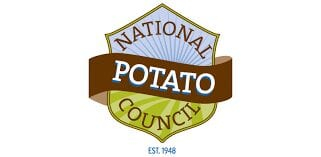Agricultural production of Irish potatoes and other agricultural commodities ramped up to meet the demands of World War II. Following the war, decreased demand led to depressed market conditions; no organized plan existed to facilitate the movement of surplus potatoes.
U.S. production areas were also expanding across the country, but conflict erupted among the regions as there was no framework for unifying the growing regions on a national level.
As early as 1947, it became apparent that it was necessary to give the potato industry a unified voice on a national level and improve the collection of data essential to production and marketing.
Therefore, the National Potato Council was formed in 1948 for the 45,000 U.S. potato growers. Currently located in Washington, D.C., NPC was organized to promote the greater consumption of Irish potatoes and to nationally represent potato farmers on legislative and regulatory matters.
Representatives from every large potato producing area were named to serve on the NPC Board of Directors, which would meet periodically to consider the potato problems and make recommendations for their improvement. Finances were provided by state potato organizations that collected dues, or quotas, from individual growers.
To this day, NPC remains committed to providing a unified voice for the U.S. potato industry on national legislative, regulatory, environmental, and trade issues to promote the increased profitability for growers and greater consumption of potatoes. NPC has been highly successful in representing the diverse interests of U.S. potato producers and plays a significant role influencing policy that directly affects the U.S. grower’s ability to compete both domestically and globally.







